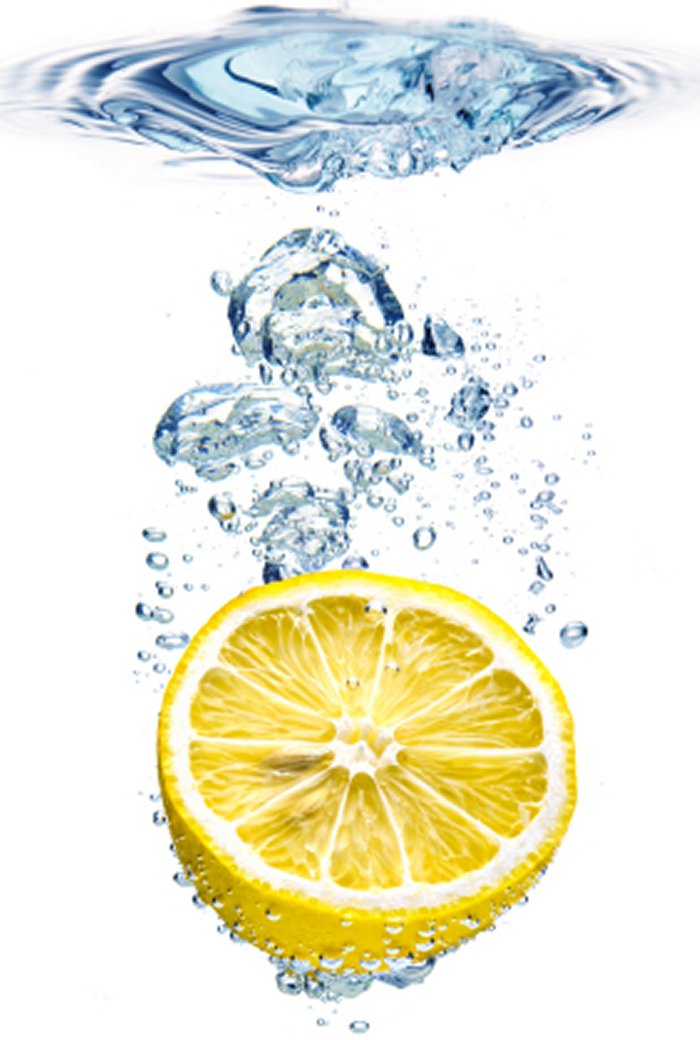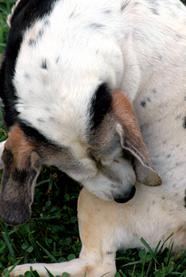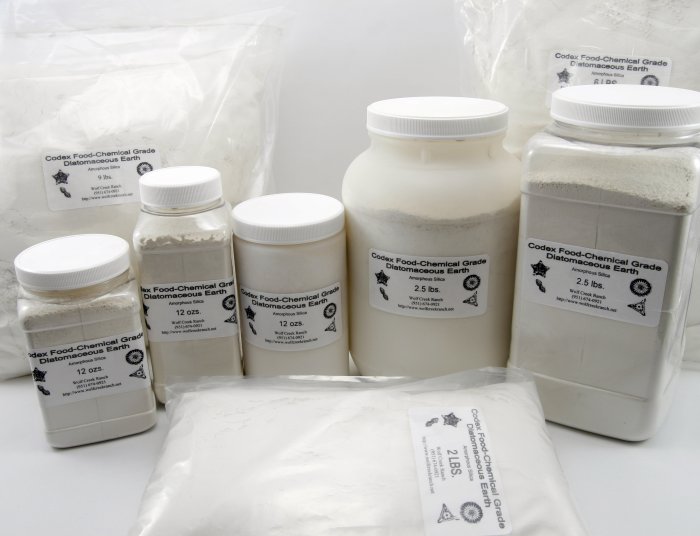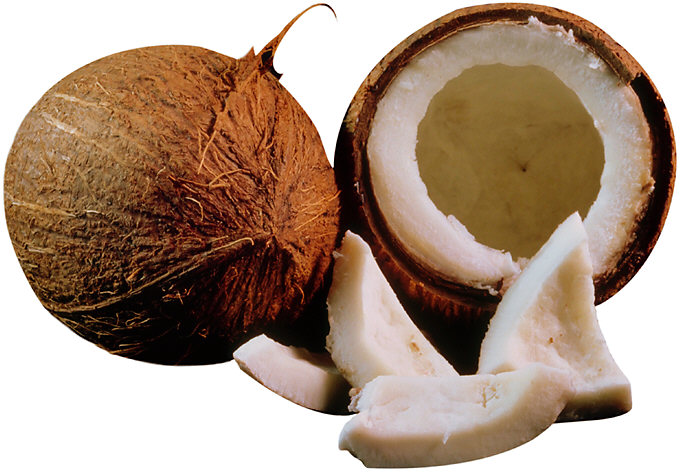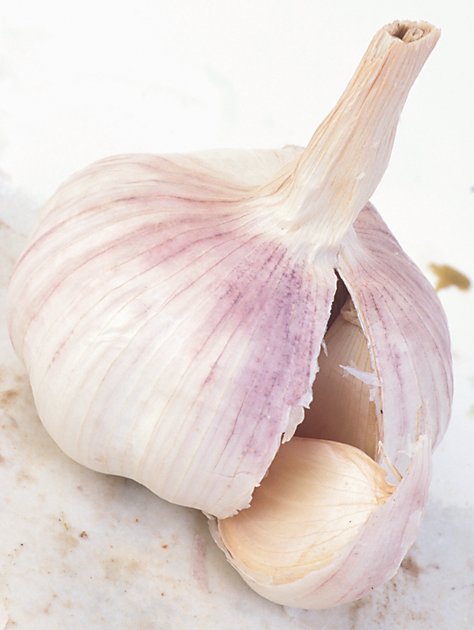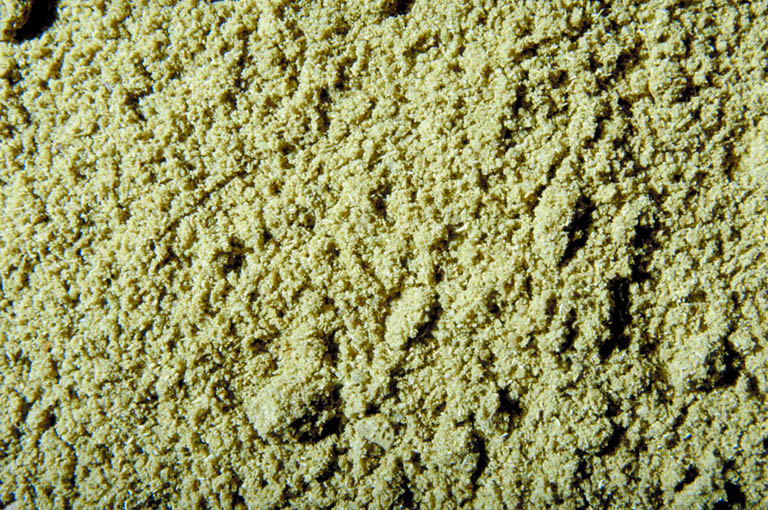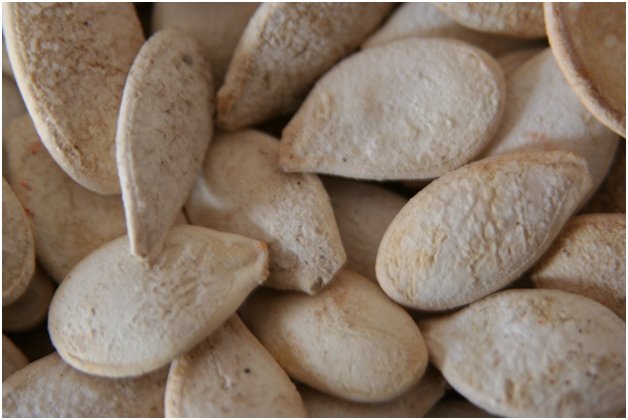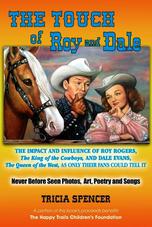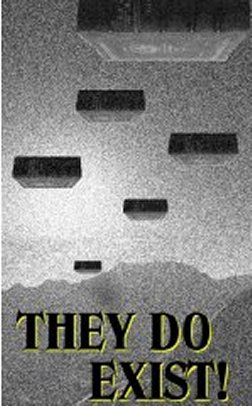Natural Foods That Help toProtect Dogs From Parasites
How to Organically Control Fleas, Worms, and Other Unwelcome Pests
A Whole-Foods Diet Helps Prevent Dog Parasites
Alleviating parasite problems for dogs using natural methods instead of harsh pesticides and other chemicals is possible and easy.
Fleas, worms and ticks are the most common parasites dog owners contend with, and while there is a cornucopia of commercial products to deal with these issues, they are not for everyone. Not every pet owner wishes to subject their dogs to the potentially harmful side effects of chemicals.
Dog Health and Parasites
The first consideration for a dog with parasites is diet. Dogs fed only
de-natured, commercial pet food can suffer from parasites due to poor nutrition.
A parasite is defined by Websters New World College Dictionary as:
a plant or animal that lives on or in an organism of another species from
which it derives sustenance or protection without benefit to, and usually with
harmful effects on, the host.
Parasites, by nature, find their greatest host source to be an animal that is in ill health,
and the first and best defense against parasites is a healthy
body. A dog achieves a healthy body through a diet rich in whole food
nutrients. Commercial pet food, particularly kibble, is void of anything fresh
or raw and is filled with undesirable ingredients dogs should avoid, like the
excessive fluoride in the bone meal common in commercial pet food.
Grains are another unhealthful culprit in commercial dog food.
Most skin problems in dogs can be corrected by removing all grains from a dog's diet.
Dogs do not need, and are often harmed by, grains. A dog's short digestive tract is
not intended to process field grains. Dogs may clamor for baked treats, but they
will also eat antifreeze. In either case, they don't know the harm about to befall them.
A diet rich in raw, whole, fresh, dog-appropriate foods helps build the animal's
immune system and ward off parasitic infestation.
Natural De-Worming and Dog Flea Control
Almost all puppies inherit worms from their mothers. And while the worms need
to be eliminated, the practice of administering harsh drugs to kill those worms is mostly
unnecessary. With the exception of heartworm, worms can be naturally addressed.
Some natural sources that help with de-worming and flea and tick control include:
internal parasites at bay, it acts as a digestive aid that helps prevent gas and
bloating. Pumpkin seed is especially effective in eliminating tapeworms.
from the gut and can relieve issues such as irritable bowel syndrome in dogs.
issues. It can be administered as a powder sprinkled over food, or given as a
fennel tea to drink.
the host animal, and pests will choose to move on to an animal whose body does
not emit that smell. Garlic also promotes a healthy immune system. Fresh garlic
can be fed to dogs in moderation. But garlic's cousin, the onion, is deadly to dogs.
Onions cannot be substituted for garlic.

Citrus. Parasites react unfavorably to citrus. A spray made from boiled
and strained lemons can act as a flea repellent.
Food grade diatomaceous earth. When added to the dog's diet, food
grade diatomaceous earth (DE) kills worms internally. Made from miniscule sea
creatures, the ingested earth attacks the worms skeletons causing them to die
and be eliminated through the dogs waste.
Very important notes about diatomaceous earth:

Food grade diatomaceous earth is not the same diatomaceous earth used in swimming pools. Swimming pool diatomaceous earth is toxic and can kill a dog. For use with dogs, or people, only Food Grade diatomaceous earth is acceptable.
Food grade diatomaceous earth can also be occasionally and gently rubbed into a dogs fur or ground into bedding to deter fleas. Food grade diatomaceous earth is perfectly safe to ingest, however, inhaling the dust is harmful to the lungs of people and pets. Safe handling of DE requires precautions to insure that the dust will not be inhaled or reach the eyes.
Adopting Safe and Sane Canine Parasite Prevention and Resolution
The five steps to optimal parasite-free health are:

4. Diligent research and education
One key to determining how much of any food source to use is to begin small and increase dosage until results are achieved. However, one individual clove per day is generally the garlic maximum for a medium to large dog, less for smaller dogs.
Dogs can lead healthy, happy lives without incurring adverse consequences from harsh chemical solutions that spawn damaging, sometimes deadly, side effects. Adverse effects from chemicals are not always readily apparent and may manifest as multiple diseases, weeks, months or even years after the dog has been exposed.
A homeopathic or holistic vet can help steer dog owners with an interest in natural canine health toward a chemical-free existence.
Every dog deserves a healthy life free of harmful parasites, but trading the parasites for cures that cause side effects and harm does not have to be the answer.
Sources:
Diatomaceous Earth photo used with permission of Wolf Creek Ranch
Parasites Can Cause Miserable
Itching for Dogs
The copyright of the article Natural Foods That Protect Dogs From Parasites is owned by its author, Tricia Spencer.
Permission to republish any part of the article in print or online must be granted by the author in writing.
Timeless
Life and Living
with Tricia Spencer

